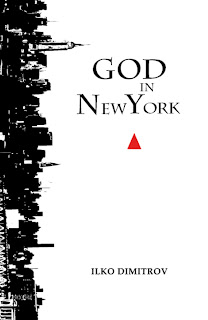 short literary fragments, English
short literary fragments, EnglishCeateSpace, USA, 2010, ISBN 978-1453727584
1.
“There is nothing new under the sun”: Ecclesiastes 1:9.
My questions:
1. Is this how things are?
2. Why are things this way?
3. How long has it been this way?
4. Will it still be like this in the future?
I like the trapezoidal shape the above questions happen to take – each question a little longer than the last. I ask myself, what question should I ask to make the top disappear, so that the trapezoid becomes a triangle?
7.
You are too close to yourself, you are within yourself – you are simply identical with yourself. You are so indivisible, you are so committed to a relationship with yourself, that you cannot see what you really have to offer, what your mind and spirit possess. If you had the necessary distance, if you could gain the needed perspective on yourself, you would have a true picture of yourself; you would see how much you possess – so much that you are in a position to use only a minute fraction of yourself. If you had the necessary perspective, you would find that you possess everything you are looking for from God, that which you wait to be given from Him through your faith; that you yourself are that gift.
God is the necessary perspective. He is not a being – he is a means, the mechanism that assures the distance – the distance itself, from which you observe yourself and find everything you are looking for, even things you did not know you were seeking. Don’t burden the mechanism with complications – when you turn on a lamp to light the room, you don’t think about how the light bulb is made, how it is wired, or how it is connected to the plug or the switch. From your perspective it makes no difference what God looks like, when He was born, how He lived and how He died. What plays the vital role in organizing and assimilating information that leads to useful insight – imagining yourself, not God.
God – the necessary distance from where I see myself in my entirety, where I see myself best.
37.
But isn’t advocating a spirituality without authorities, without supreme truths, without supreme principles, without rigid rules, a spirituality without regulations – also proposing an extreme that is as dangerous as “regulated” spirituality? And isn’t there a contradiction – to advocate the deregulation of spiritual practices and at the same time to declare unsound the variety of analytical amalgams and palliatives that encrust the modern world?
Deregulated spirituality is founded on a synthesis between reason and spirit, between responsibility and vocation, between now and then, between here and everywhere. This synthesis is unambiguously required to emphasize the paramount significance, the paramount importance of the human being who has direct, free and unobstructed access to God and who has no part in the intermediate administration of this access. This synthesis, on the other hand, implies as an intrinsic human trait, as Intrinsically Human – a sense of responsibility. The serious and committed fulfillment of a life’s work is the conjoining, the interlocking, the fusion between doubting reason that seeks confirmation and liberated spirit that seeks solace. Humanity is most successful, Humanity can only be successful when reason and spirit combine, each playing its indispensable role. What one does on its own and what the other does on its own, everyone knows perfectly well – alone or as a brute aggregate. We have witnessed this many times already.
tr. by prof. David Jenkins & Hristianna